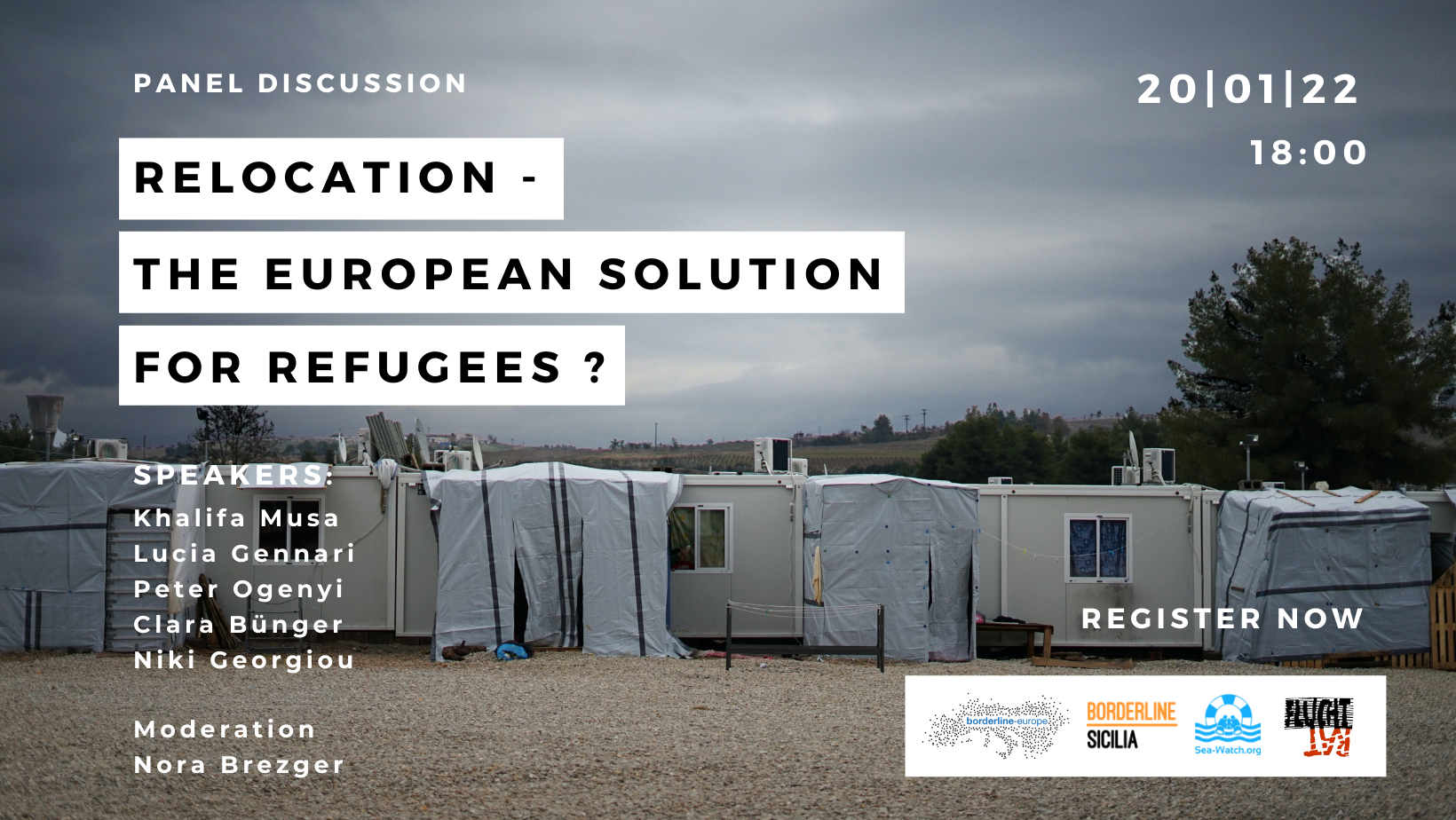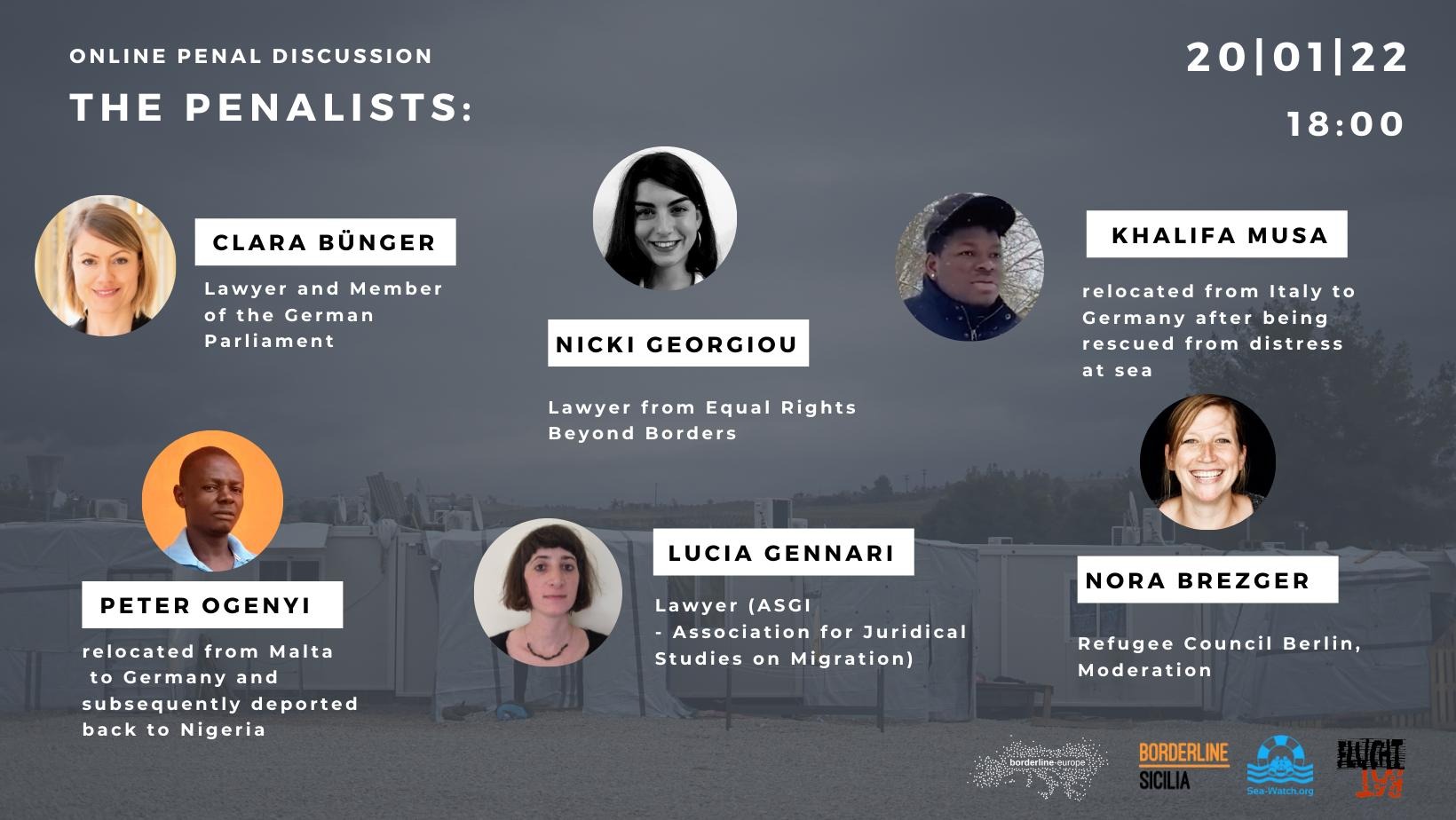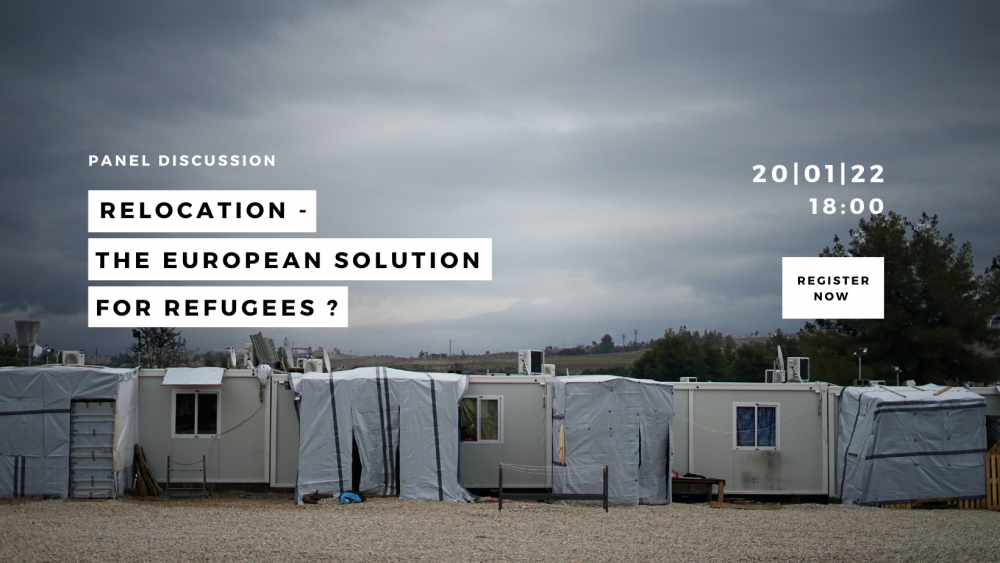Event: Relocation - The european solution for refugees?
An online event on Zoom. Watch the Livestream.
Disastrous conditions at Europe's external borders, overcrowded and inhumane camps on Greek islands and in Italy, or sea rescue ships waiting in the open sea with hundreds of people on board because they are denied access to a safe port. These images have led to repeated calls for relocation and reception. Relocation is demanded by some civil society actors as a result of the Dublin system and the attempt to continuously externalise European borders. At first glance, relocation appears to be a good alternative, especially considering the numerous cities across Europe that have declared their willingness to take in people rescued from distress at sea.
On a political level, relocation is also presented as a solution for a fairer reception system. Last year's proposal for the new EU Pact on Migration and Asylum emphasises the need for cooperation among member states and highlights the voluntary reception of people from hotspots at the external borders, aka relocation, as an instrument for "solidarity-based" cooperation.
In the coalition agreement, the new federal government also affirms its intention to strengthen relocation deals. Accepting refugees especially in objective crises, such as after the fire in the Moria camp, serves the federal government in presenting itself as a helping hand, as a moral role model.
But what is actually behind the relocation agreements? What happens to the people taken in by Germany after sea rescues or the fire in Moria? What about those to be relocated to Germany after days of standoffs on the open sea? Does relocation really lead to a life of safety?
We will explore these and other questions in our online event on 20.01.2022. People who have gone through the relocation process themselves will share their experiences and discuss the challenges and problems of the European relocation process with other experts, also regarding German policy.
Panelists
- Clara Bünger, Lawyer and Member of the German Parliament
- Khalifa Musa, relocated from Italy to Germany after being rescued from distress at sea
- Lucia Gennari, Lawyer (ASGI - Association for Juridical Studies on Migration)
- Peter Ogenyi, relocated from Malta to Germany and subsequently deported back to Nigeria
- Nicki Georgiou, Equal Rights Beyond Borders
Moderation: Nora Brezger, Flüchtlingsrat Berlin e.V.



